June 30 is just three short months away, and planning now will allow you the time needed to implement financial strategies that could help you to avoid paying what can be significantly more tax than you should.
The fact is, once the calendar flips over to 1 July, opportunities for saving tax, tax-effectively bolstering your retirements savings and planning your cashflow to meet any income tax or ESS tax obligation, will have gone!
I understand.
Finding the time to plan anything in advance is difficult and it’s common for professionally successful executives to struggle to find the time to deal with their own personal affairs. It’s called ‘executive dis-order’ and in my experience, the impacts often deprive executives of what can be considerable personal wealth.
But not today!
Following are THREE common tax effective strategies that are frequently left to the very last minute or not actioned at all by busy executives. I implore you, please take the time now to review each of these opportunities. Then act. If you don’t have the time to take action yourself, I invite you to give me a call.
#1 Top up your super
The Employer Super Guarantee is currently 10% of your salary (increasing to 10.5% from 1 July) and your annual concessional super contribution cap is $27,500. For many executives, there is the opportunity to salary sacrifice, top up their annual contributions and enjoy the 15% rate tax environment super offers. For example: Those earning $200,000 pa will enjoy $20,000 SG courtesy of their employers, leaving an opportunity to salary sacrifice $7,500 before June 30 to take advantage of the super tax saving.
However, it must be noted, exceeding your concessional cap will likely result in a penalty from the ATO. It’s important to check any salary sacrifice contributions that may have been made during the year along with any personal risk premiums paid for superannuation-owned insurance policies aren’t added, as this can cause you to exceed your cap.
#2 Super Catch Up
In the last couple of years, the Government introduced a catch-up contribution rule. This enables you to boost your super balance with any ‘unused’ concessional contribution amounts since 2018/19 for up to five years.
That is, if you contributed a total of $20,000 to super last year (2020/21) when the concessional contribution cap was still $25,000, this year (2021/22) you would be able to contribute up to the total annual cap, which is now $27,500 as well as the unused $5,000 from last year.
This provides something of a triple benefit.
First, the premise of salary sacrifice is to reduce your overall taxable income, meaning you pay less tax because your total assessable income is less. These additional concessional contributions may also be used to reduce tax from capital gains that may apply on investments held outside super.
Secondly, as mentioned previously, the super environment is taxed at 15% tax rate, which is considerably less than the income tax rate which can be as high as 45% (plus the Medicare levy). However, it must be noted for employees who earn over $250,000, you may be subjected to a further 15% contribution tax – even so, there’s still a worthwhile tax saving. The balance of your super fund is a key factor in eligibility for this strategy. Your age is another. I’d suggest you’ll need advice to understand the rule fully to enjoy the benefits, rather than unintentionally disadvantage yourself.
And thirdly, contributing to super bolsters your retirement savings. When they’re invested well inside super, you stand to enjoy extra income in the form of dividends and compounding interest.
However, for some highly paid executives, the problem won’t be making the most of the cap, but ensuring they don’t exceed it.
#3 Bring Forward Rule
Once you’ve exhausted your concessional (before tax) contributions, you may be able to take advantage of non-concessional (after tax) contributions. The bring-forward rule allows non-concessional contributions, currently $110,000 per year to be brought forward for up to three years.
That is, up to $330,000 may be contributed to your super fund in a given financial year. This provides another opportunity for boosting your retirement savings balance and growing it further when invested wisely within the super environment.
The bring-forward rule provides opportunities for high income earners with surplus cash or who may be the recipient of a large sum of cash thanks to an inheritance or from the sale of an asset. Of course, there are conditions around your age and the total balance of your super fund that must be considered to utilise this rule.
Other super benefits
Among the other benefits available are government spouse co-contributions; contributing directly to your spouse’s super; and contribution splitting with your spouse.
The first provides opportunity to claim a government co-contribution on low or no-earning spouses, up to $500 p.a.; the second provides a tax offset to a maximum of $540 that can reduce your taxable income. The latter can enable super to be shared between you and your spouse, should your super balance exceed the maximum amount of $1.7m and spouse’s super balance remains under it.
Suffice to say, there’s a lot to be considered. It is important you seek advice from a financial adviser to determine whether any of these super contribution strategies are suitable for you based on your circumstances, goals and objectives. Exceeding super contribution caps may result in paying extra tax.
A final word for ESS participants…
As you are no doubt aware, tax compliance for Executive Shares Schemes (ESS) is notoriously complex. At the end of this financial year, any shares you hold that have vested will have a tax liability that will need to be paid. For many busy and unsuspecting executives who have failed to plan adequately, the amount of tax payable can come as an unwelcome surprise.
Without cash on hand to meet the obligation, the result is often a cashflow crisis or actions such as having to sell assets to realise funds necessary for meeting your ATO liability.
To avoid what can be both stressful and financially difficult, may I refer you to an article I prepared for mining and resources ESS holders. The context and insights are equally appropriate for ESS holders in other industries. Please click here to learn more.
For in advance, end of financial year financial planning and strategic ESS advice, please contact James Marshall at Executive Strategies on +61 7 3007 2080 or email contact@executivestrategies.com.au
James Marshall is the 2021 ifa Holistic Financial Adviser of the Year.
Executive Strategies is a specialised information hub for executives and senior managers who may have founded their own business or who work for growing private, ASX listed companies or government businesses. Its purpose is to provide access to specialist advisers and information that addresses the often-complex issues affecting their personal prosperity.
Stratus Financial Group and its advisers are Authorised Representatives of Fortnum Private Wealth Ltd ABN 54 139 889 535 AFSL 357306. This is general advice only and does not take into account your objectives, financial situation or needs, so you should consider whether the advice is relevant to your personal circumstances. You should also read the relevant Product Disclosure Statements (PDS) before making any financial decision.
Please note: Tax advice and other services not offered under the Fortnum Private Wealth AFSL are referred to appropriately qualified professionals.








